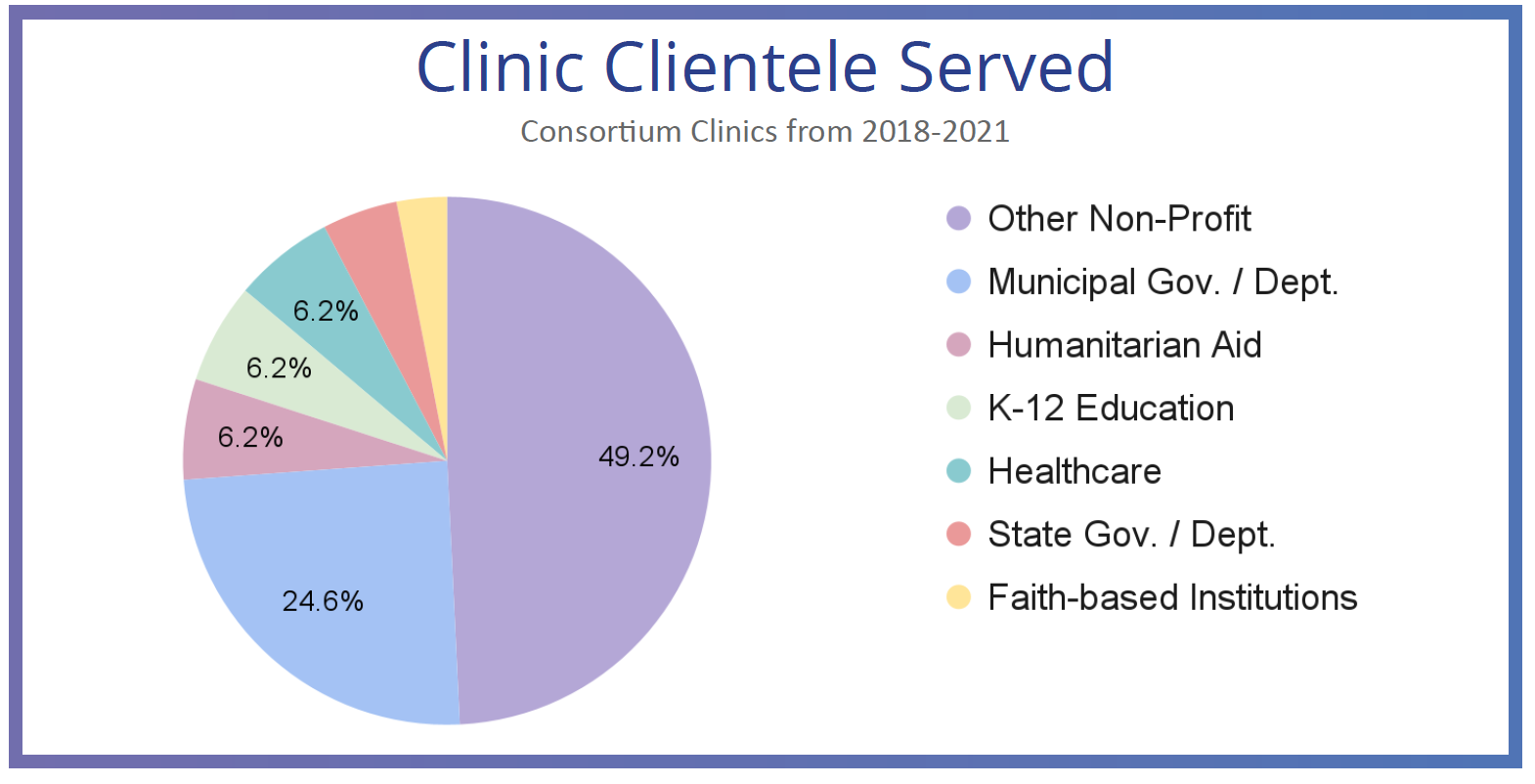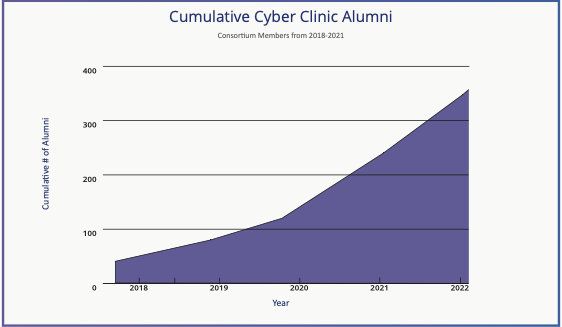Celebrating two years of the Consortium of Cybersecurity Clinics
Cybersecurity clinics in higher education are the latest in an effort by academic institutions to bolster a national cyber workforce and serve their communities. We are absolutely thrilled to be celebrating two years of the Consortium and its members! Looking back on our history and successes of the last 24 months, the Consortium of Cybersecurity Clinics continues to serve as a central hub for universities across the nation looking to fund and grow cybersecurity clinics, each with tailored curriculum and outreach programs specific to their regions.
Before the official launch of the Consortium, three universities already had the basis for a clinic program. UC Berkeley, under their Citizen Clinic, launched a pilot program in 2018, hiring instructors and accepting students in Spring 2019 to participate in cybersecurity programs for course credit. The University of Indiana was implementing a similar program, soft-launching their clinic in the first academic semester of 2019, and in 2020, the MIT Science Impact Collaborative announced their plans to form the MIT Cybersecurity Clinic with support from PIT-UN.
With the launch of these programs, Berkeley and MIT set out to pull the programs together on a set of conference calls, the first of which took place in May 2021 and included participants from UC Berkeley, MIT, University of Indiana, University of Alabama and R Street Institute. The idea of a “Consortium” was originally pitched to the group as a community of practice that would meet informally a few times a year, but within the first month there was so much energy and enthusiasm that the program expanded into an international Consortium with monthly meetings and a vision of creating “a cybersecurity clinic in every state by 2030."
In the two years since its inception, the Consortium has grown from its website launch at UC Berkeley’s Center for Long-Term Cybersecurity in May 2022 into an international collaborative for universities and community colleges that train hundreds of new cyber defenders each year. Focusing on developing innovative strategy, planning courses and curriculum, and sharing best practices, the Consortium of Cybersecurity Clinics takes pride in expanding who participates in cyber through promoting regional diversity.
Our team could not haver imagined that what began as a few educators on a video call has developed into a collaboration of 10 active clinics, a growing network of 730+ alumni, and clientele of 120+ organizations nationwide.
On December 19, 2022, the Consortium of Cybersecurity Clinics, representing 10 universities across the United States, as well as a few regional cyber organizations, convened a meeting to celebrate the end of our second academic year. Here are some updates from Consortium Members:
- MIT announced the development of a new tool called SCRAM, which helps organizations understand where they stand with cybersecurity measures.
- Indiana University introduced a partnership with Purdue University and the State of Indiana, which includes a 4 year long, 4 million dollar partnership doing cybersecurity assessments for Indiana counties and municipalities.
- The University of Georgia announced 24 paid interns this fall that serviced 6 organizations, and hopes to bring on additional students in the spring.
Looking to the future, the Consortium of Cybersecurity has several agenda items in the works for their website, including a published Organizational Cybersecurity Maturity Model and a Cybersecurity Toolkit for all clinics to use for under-resourced clients and easily accessible to the general public. But most excitingly, the Consortium is looking forward to seeing the planned developments from members;
- RIT is trialing a SAFE (Security Assessment and Forensic Examination) lab program, paying students as interns on campus to do pentesting and enhancing their skills in the field.
- UNLV is looking for further funding and partnerships, having trialed a successful clinic model that is student led and operated, which trains students as well as partners with other universities to successfully operate a cybersecurity program. UNLV has also announced a methods course available for Spring 2023, which will break down the basics of cybersecurity components and aid students in developing their skills for the job field.
- Stillman College is in the early process of developing a cybersecurity clinic, and is working in close partnership with the Consortium.
In the coming year, the Consortium of Cybersecurity Clinics is looking forward to continuing its outreach program and funding new projects, as well as exploring the new opportunities that becoming an international hub has to offer.
Again, Happy 2nd Birthday to the Consortium, and thank you to all Members for their continued support to bolster cybersecurity clinics worldwide, train the next generation of civil defenders, and improve community resiliency to rising digital threats!

